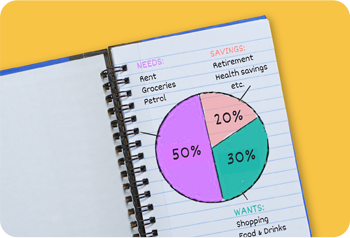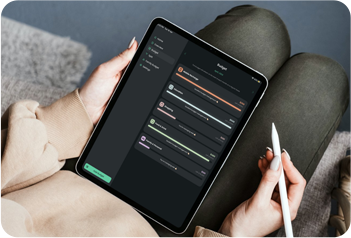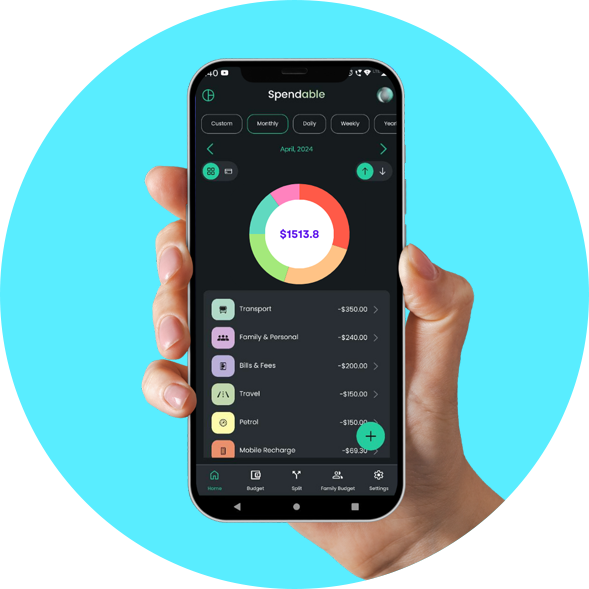Financial Terms that You Should Know Of!
The vocabulary of finance may seem like a complicated dance. With each step being essential to your financial planning and well-being, making sensible financial decisions requires an understanding of the financial jargon. To simplify these crucial financial terms for yourself, take a look further and keep exploring!
1. Emergency Fund
An emergency fund can be understood as a pool of money set aside for unexpected expenses. These expenses may include
- Medical bills
- Car repairs
- Unemployment
- Debt and more.
These funds help to avoid debt and ensure financial stability. One can keep an ideal amount of 3 to 6 months' worth of expenses aside. To keep emergency funds aside, one can seek help from the best money management app Spendable which is available on both Android and iOS.
2. Discretionary Spending
Discretionary spending can be understood as those expenses which are non-essential and can be reduced or eliminated. This may include going out for dinner, seeking entertainment like going to movies or indulging in a hobby that requires investment. As these can be reduced during financial difficulties, it can free up funds for savings.
3. Fixed Expenses
Fixed expenses can be understood as those expenses which are regular. In other words, these are unavoidable costs that do not change with time. This may include expenses like
- Rent
- Mortgage
- Utilities like water, gas, electricity, etc.
- Insurances
- Subscription services
- Debt repayments and more.
As these remain the same each month, it is essential to prioritize fixed expenses. You can value the expenses by relying on a pro budget app like Spendable. This would ensure that all your essential needs are met through the use of varied features of this featured multilingual app.
4. Variable Expenses
Variable expenses are those that change monthly. These expenses may include groceries, gas, entertainment, travel and more. These can be adjusted based on your budget and priorities. You should monitor and adjust variable expenses to stay within budget. Lastly, you can allocate funds effectively by relying on an AI-based budget tracker app like Spendable.
5. Inflation
Inflation can be understood as a sustained increase in the general price level of goods and services. This may lead to impacts like reducing purchasing power, increasing the cost and effects on savings as well as investment. The best thing you can do in such times is to invest in assets that perform well.
6. Cash Flow
Cash flow can be understood as the movement of money into or out of your accounts every month. Positive cash flow means more money is coming in than it is going out. However, you can rely on the financial management apps to monitor cash flow. This would ensure that the income exceeds the expenses and allocate excess funds towards savings as well as investment.
7. Liabilities
Liabilities can be understood as debts or financial obligations. This may include credit card balances, loans, mortgages and more. Because of liabilities, it can lead to reduced net worth, restrict financial flexibility and increase expenses. When liabilities are managed, it prioritizes debt repayment, negotiates lower interest rates and prevents new debt.
8. Gross Monthly Income
Gross monthly income can be understood as total monthly earnings before taxes and deductions. It is essential that one accurately calculates their income to create a realistic budget and a financial plan. One can even choose to use expense tracker applications, for example, Spendable to set a budget or for future financial planning.
9. Net Worth
Net worth can be understood as the total value of your assets minus liabilities. This represents overall financial health. When it comes to the calculation, the assets including savings and investments and liabilities including debts and loans are taken into account. However, you can monitor your net worth to track progress towards financial goals.
10. Financial Goals
Financial goals can be understood as specific, achievable and objectives. This may include saving for a down payment, paying off a debt or for retirement. When setting financial goals, it is important to focus on financial efforts, create a plan and measure progress. These can be done by using money management applications like Spendable.







 FREE
Available on
FREE
Available on

